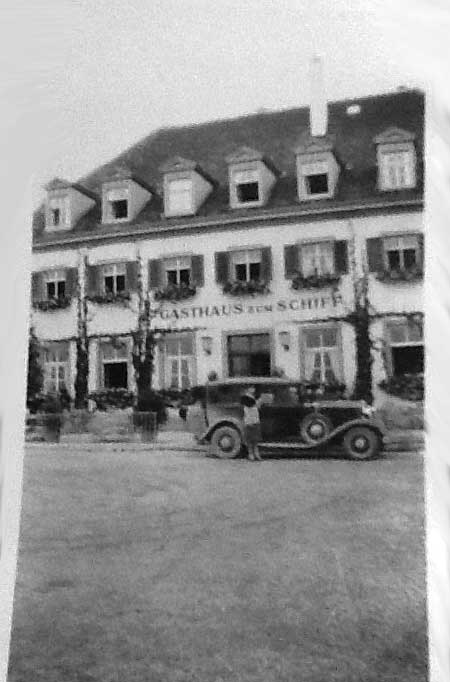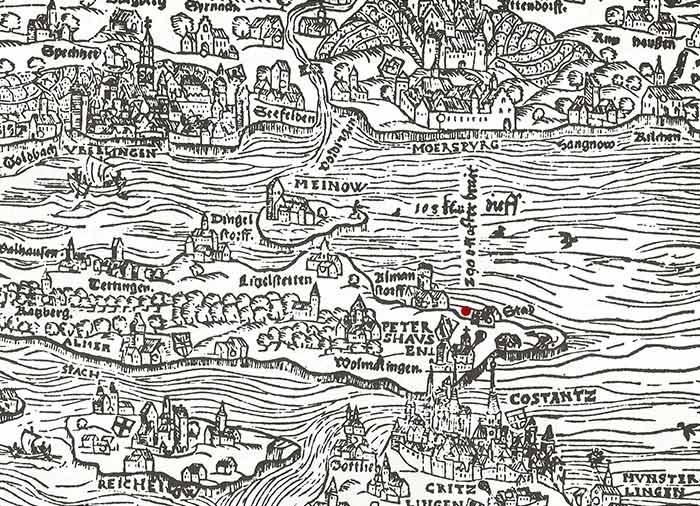History – Overview
Insight into almost 750 years of host history.
Whitecoats, Swedes, unpleasant guests, drinking bouts and a changeful history ...
Insight into almost 750 years of hosting history About whitecoats, Swedes, unpleasant guests, drinking bouts and a changeful history …
The establishment of the “Hotel Schiff am See” has its roots in the establishment of the Kommende Mainau of the Teutonic Order in 1272. After Hospitallers and Templars, the Teutonic Order was the third of the great religious knightly orders of the time of the crusades.
Almost 100 years younger than them, he essentially followed the rules and organizational patterns they had set out. In the year after the founding of the Kommende Mainau, they were looking for a place for a “taberne” or hostel for the community. What could be more obvious than opening this at the well-known and frequented ancient crossing point on the lake shore.
This laid the foundation for a changeful history between wars, the changing ownership structure and the changing times. We would like to take you on a journey through this very history with some excerpts from traditional stories.

Chrysler with “Aunt Greta” in 1932
Origins in 1272
When Allmannsdorf came from the Reichenau monastery to the newly founded Deutschritter-Kommende Mainau (see historical overview below), the abbey owned, as the exchange contract of 4/5. August 1272 shows , already a farm in Staad. The M ai e r (villicus) appointed by the monastery lived in the main town Allmannsdorf, which formed a community with Egg, Staad and all branches.
The hostels were also one of the duties of the Maier. He had to ensure that within the community – if possible in his courtyard – there was a “taberne” or “Elendswirtschaft” (5), that is, a hostel for foreigners, which accommodated the monastery officials who came to the village and grant every poor traveler free quarters for one night .
The age-old crossing point, where there was an urgent need for a guest house and rest house, was the ideal place to place this house. The inn, which has been known as the Allmannsdorf inn for centuries, was the only “T a f e r n w i r t s h a f t” on site until the beginning of the 19th century.
Only Tafernen had the right to serve different wines, to accommodate strangers and to give them cold and warm dishes, while “innkeepers or afterkeepers” were only allowed to sell one type of wine and not to offer “table or hostel” to strangers traveling through.

Historical map section from 1603
Legend
5 – Elendswirtschaft. Misery, from Old High German eili-lenti, in a foreign country. „Going into miserey“ used to mean „going abroad“.
The Hotel Schiff am See can therefore rightly call itself “Germany’s oldest inn”!



